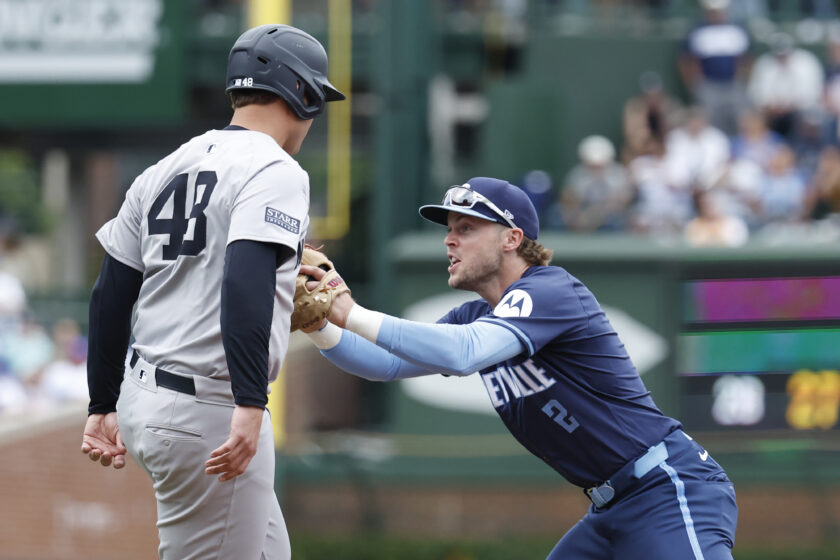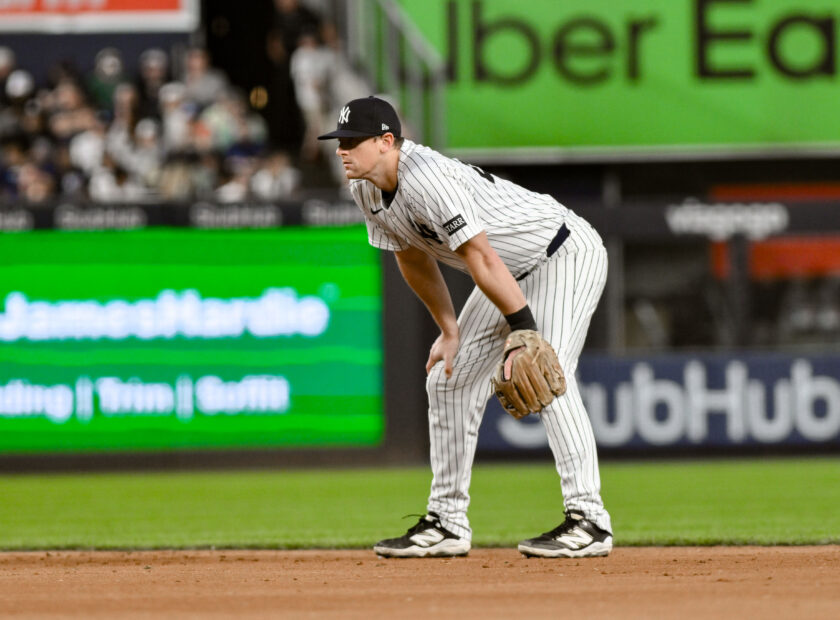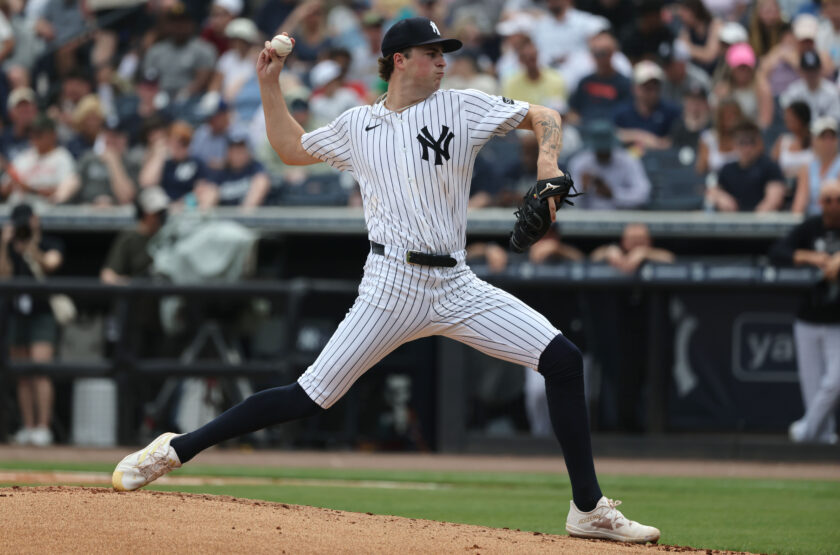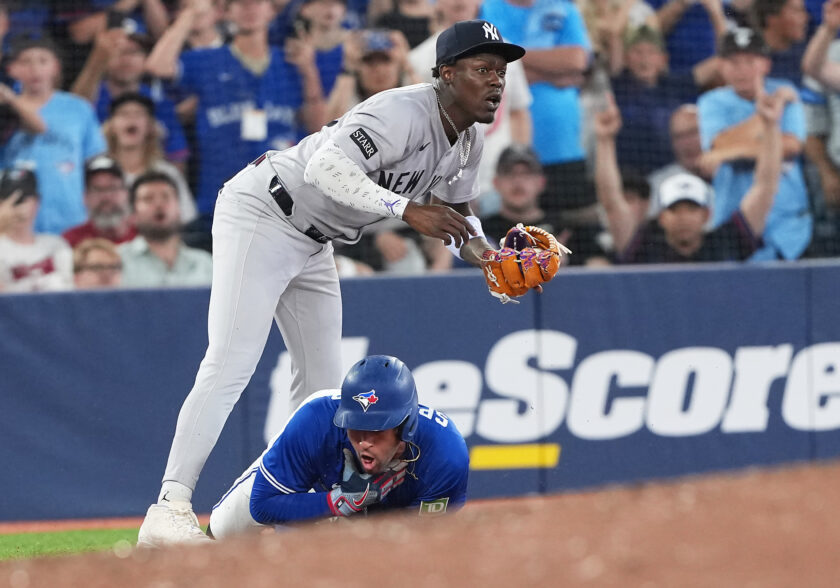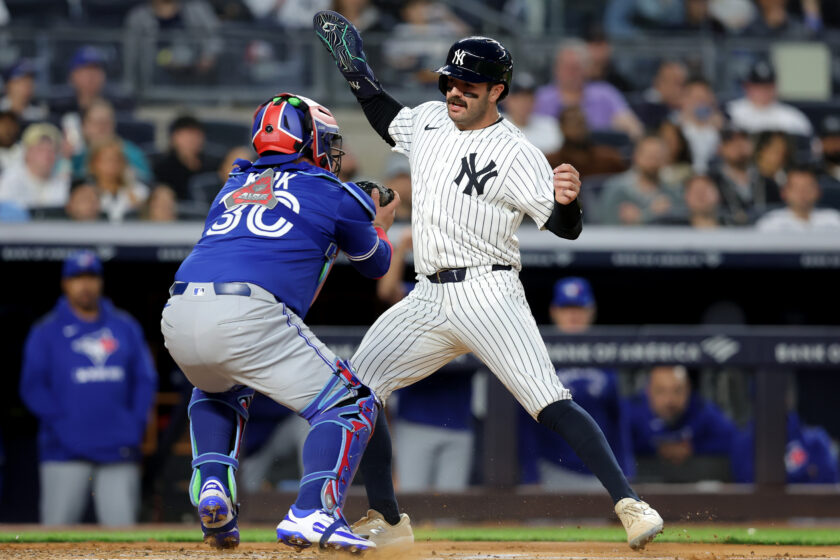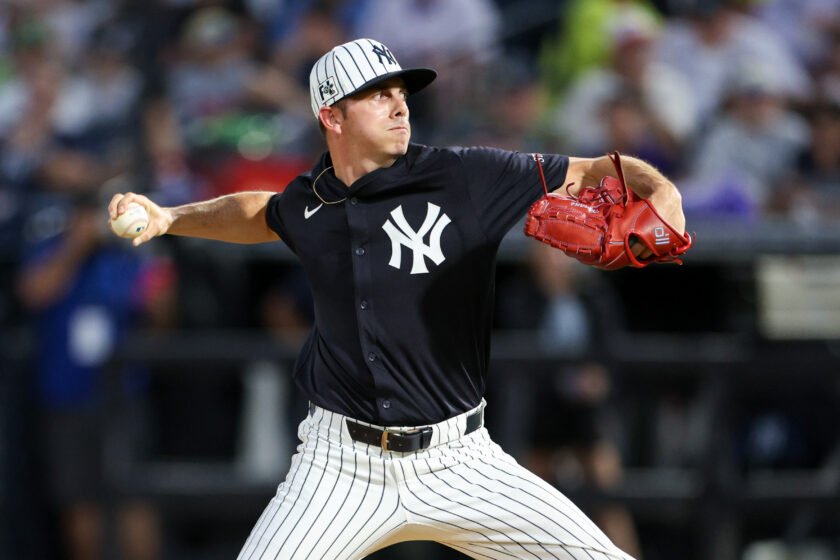Aaron Judge should no longer be the lone face of the New York Yankees
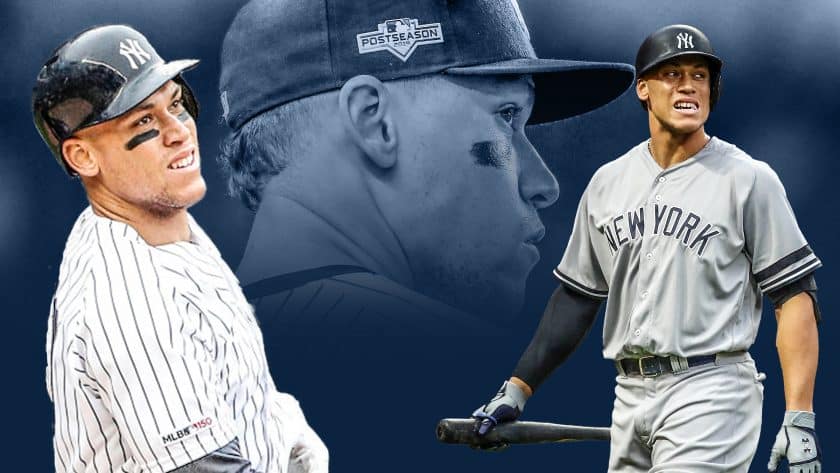
After elimination from the playoffs, outfielder Aaron Judge admitted he felt this season was a “failure” but he’s also largely responsible for the New York Yankees’ exit from the postseason.
Going into the playoffs, most people expected the New York Yankees to make it to the ALCS. What those people didn’t count on was for the Yankees offense to lead to their downfall against the AL Pennant-winning Houston Astros.
During the six games against the Astros, the Yankees struggled mightily with runners in scoring position, as their team hit just six-for-35 with RISP.
Aaron Judge‘s hitting woes at the plate during the ALCS severely hindered the Yankees from overcoming their 3-1 series deficit. Specifically, Judge’s inexcusable base running mistake during the final game of this series cost the Yankees an opportunity to push the Astros to an all-deciding Game 7.
Perhaps No. 99 needs help carrying the organization.
After Judge earned a walk in the third inning, second baseman Gleyber Torres sent a weakly hit ball to left field that should have allowed the Yankees’ right fielder to advance from first base to third. By only advancing to second base, Judge was unable to be driven in on a deep fly ball hit by Aaron Hicks.
For argument’s sake, let’s say that Gio Urshela‘s solo home run in the top of the fourth inning would have tied Game 6 at 3-3 entering the bottom of the sixth inning. If the game was tied coming into that half-inning, manager Aaron Boone likely would have instructed his defense to be playing in with runners on first and third with no one out. That would have given shortstop Didi Gregorius a greater opportunity to throw home to prevent Jose Altuve from scoring.
Altuve thrown out in the bottom of the sixth inning would have allowed infielder DJ LeMahieu to give the Yankees a two-run lead with his home run in the top of the ninth inning. Entering the bottom of the ninth inning with a 5-3 lead, closer Aroldis Chapman would have likely pitched even more aggressively to George Springer and Altuve knowing his team had a two-run cushion to play with.
Even if Chapman still surrenders a two-run home run from Altuve, the game would have gone into extra innings instead of ending with a walk-off. If the Yankees were able to cut the Astros’ lead to 3-2 in the top of the third inning, the Yankees very well could have further extended this series. While Judge did save multiple runs with defense in right field during this series, he also became a liability at the plate and on the basepaths as well.
During the six games against the Astros, Judge hit just six-for-25 (.240 AVG) along with a two-run home run during Game 2. The Yankees’ slugger also struck out 10 different times while only generating a trio of walks against the Astros. Along with being unproductive at the plate in the ALCS, Judge also didn’t play much of a factor in the Yankees’ sweep of the Twins in the ALDS either.
Despite producing a total of four walks to just a single strikeout in the ALDS, Judge was unable to drive in any runs himself and failed to hit for extra bases throughout the series. For whatever reason, the two-time All-Star just hasn’t been able to come through in clutch situations throughout his career. During Games 3 and 4 of last season’s ALDS series against the Boston Red Sox, Judge failed to record more than just a single in seven at-bats.
[sc name=”Yankees Center” ]Then there was Judge’s ugly and inexcusable performance during Game 7 of the ALCS against the eventual World Series-winning Astros in 2017. In that game, the former Rookie of the Year award winner went 0-for-4, along with a strikeout. Through the years, the face of the Yankees has been a player who has come through for them in clutch situations and Judge has yet to do exactly that.
There’s no question about his production during the regular season, as Judge has recorded a combined 18 fWAR ever since entering the league. But, Judge’s struggles when the Yankees’ season has been on the line is exactly why he doesn’t deserve to be the sole face of the franchise anymore. He needs help.
Judge will also be eligible for arbitration for the first time in his career this winter. Based on the $684K he made this season, Judge will very likely be expecting a significant raise from the Yankees. Early reports are suggesting that Judge will likely command somewhere around $15 million from the Yankees, which is certainly reasonable for a player of Judge’s caliber. Although, until Judge is capable of performing in the biggest moments, he shouldn’t be paid anywhere near $30 million.
Judge removed as the face of the Yankees (in a hypothetical world) would mean they’d require another player to center their team around, and that player should be Gleyber Torres. This postseason, the Yankees’ second baseman displayed that he’s actually someone his team can rely on to produce in key moments in October.
Along with his game-clinching home run to complete the sweep of the Twins, Torres also created a home run and five RBI during Game 1 against the Astros. While Torres still has areas of his game that needs improving on, the 22-year-old clearly owns traits of becoming the newest face of the Yankees.
The Yankees are likely going to be making some significant adjustments this offseason, in hopes of reaching the World Series in 2020. Based on recent playoff performances, one of those changes will need to come with choosing a new leader of the Bronx Bombers.
[sc name=”Yankees Link Next” link=”https://elitesportsny.com/2019/10/23/newest-mantra-for-joe-girardi-aaron-boone-era-new-york-yankees-wait-until-next-year/” text=”The Newest Mantra For The Girardi & Boone Era Yankees Is Wait Until Next Year” ]
